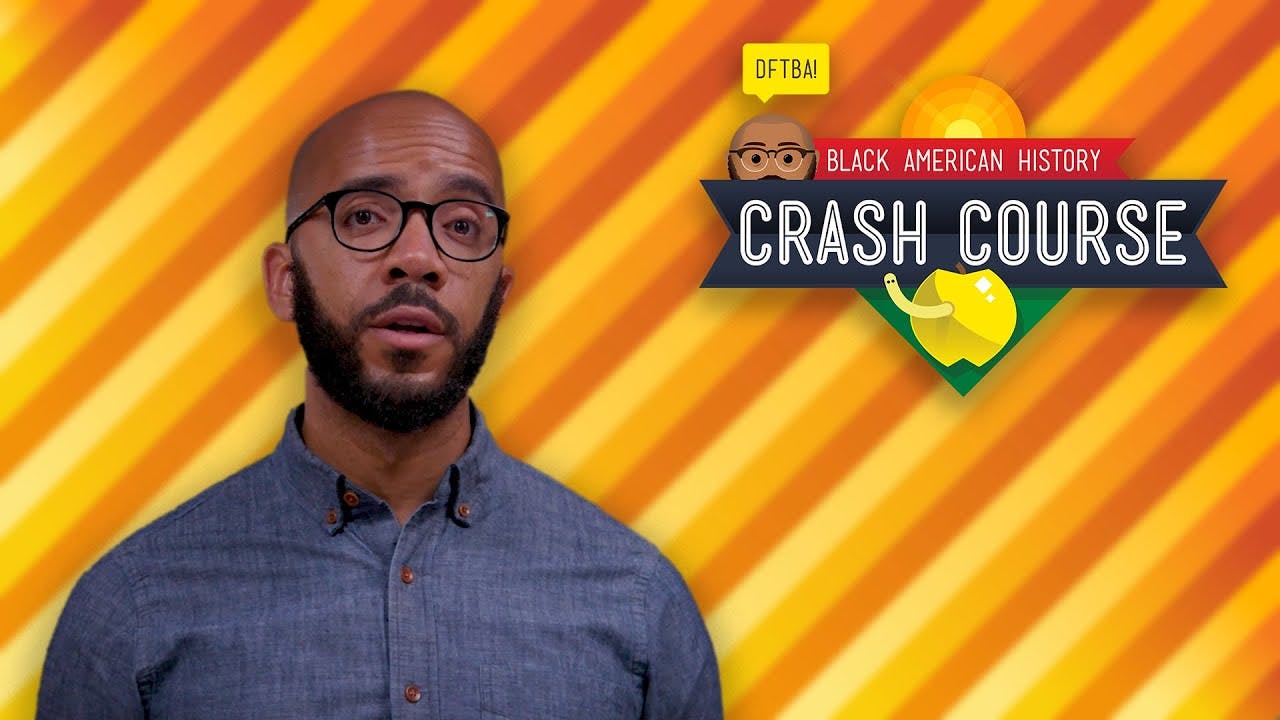Black American History Arts & Culture | Compilation
()

Harlem Renaissance
- The Harlem Renaissance was a period of artistic production and expression by African Americans that took place shortly after World War I and lasted into the mid-1930s.
- It was centered in Harlem, New York City, but also flourished in other cities like Chicago, Cleveland, Los Angeles, and Washington, D.C.
- Key figures in the visual arts included Richmond Barthé, James VanDerZee, Aaron Douglas, and Meta Vaux Warrick Fuller.
- Langston Hughes was one of the most famous poets of the Harlem Renaissance, known for his authentic portrayal of the black experience.
- Other notable writers included James Weldon Johnson, Arturo Schomburg, Walter White, Claude McKay, and Countee Cullen.
- Gwendolyn Bennett and Zora Neale Hurston were important female writers who contributed to the literary arts.
- Blues and jazz revolutionized the American music landscape, with influential figures like Ma Rainey, Bessie Smith, Duke Ellington, Eubie Blake, and Billie Holiday.
- The Harlem Renaissance had a profound impact on American culture and continues to shape the landscape of arts and letters today.
Political Activism during the Harlem Renaissance
- The Harlem Renaissance conveyed larger political messages and addressed social issues.
- Black theorists and political thinkers debated effective ways to help black communities.
- A. Philip Randolph and Chandler Owen defined the "new negro" as uncompromising in political equality and universal suffrage.
- The National Association for the Advancement of Colored People (NAACP) and the National Urban League engaged in grassroots activism to combat discrimination and segregation.
- Carter G. Woodson founded Negro History Week in 1926, which later became Black History Month.
- Marcus Garvey and his Universal Negro Improvement Association (UNIA) advocated for pan-Africanism and black nationalism.
- Garvey's separatist views led to strange alliances, such as with the racist Ku Klux Klan.
- The UNIA also focused on racial uplift and reform in the US, addressing issues like voter registration, healthcare, and education.
- The Black Starline Steamship Company was created to transport people to Africa and foster a self-reliant global black economy.
- Despite his emphasis on Africa, Garvey held some negative views about African people.
- Marcus Garvey was convicted of mail fraud in 1923 and deported to Jamaica in 1927, effectively ending the UNIA.
- Despite controversy, Garvey's legacy impacted the Black Power Movement and coined the phrase "black is beautiful."
Zora Neale Hurston
- Zora Neale Hurston was a brilliant writer and anthropologist who emerged during the Harlem Renaissance.
- Hurston's work centered the perspectives of black women and combined research and folklore.
- Hurston struggled to maintain a mainstream audience and faced personal challenges, including poverty and multiple strokes.
- Alice Walker's essay "In Search of Zora Neale Hurston" revived Hurston's work and brought her out of obscurity.
- Hurston's work went beyond the Harlem Renaissance, exploring the struggles of black Americans throughout the US, especially in the South.
- Hurston's unique approach incorporated research methods into fiction, creating realistic and nuanced stories based on real conversations.
- Hurston's work expanded beyond the black experience, tapping into universal truths and documenting stories that might have been forgotten.
Hip-Hop and Rap
- Hip-hop and rap emerged in the 1970s in the Bronx, New York City, as a form of entertainment at block parties and social gatherings.
- Hip-hop culture encompasses four main pillars: DJing, rapping, graffiti, and breakdancing.
- Groups like Grandmaster Flash and the Furious 5, Public Enemy, Run-DMC, Salt-N-Pepa, Beastie Boys, LL Cool J, Queen Latifah, and A Tribe Called Quest contributed to the genre's development.
- Hip-hop competitions sometimes led to rivalries, such as the East Coast versus West Coast rivalry between Biggie Smalls and Tupac Shakur.
- As hip-hop gained mainstream popularity in the 1990s, it faced criticism for its explicit lyrics and portrayal of "ghetto life," leading to debates about its impact on Black communities.
- Black women MCs, such as MC Lyte, Yo-Yo, Queen Latifah, Da Brat, and Eve, emerged and challenged male-dominated narratives by promoting Black feminist messaging and addressing issues of sexism, racism, and class politics.
- Black rappers in the 1990s focused on radical politics and community engagement, while others revolutionized the portrayal of black women by taking control of their hypersexualized representation in popular media.
- Artists like Lil' Kim and Foxy Brown projected dominance, control, and lyrical prowess, flipping the script on black women's passive objectification.
- Missy Elliot offered a complex and queer representation of